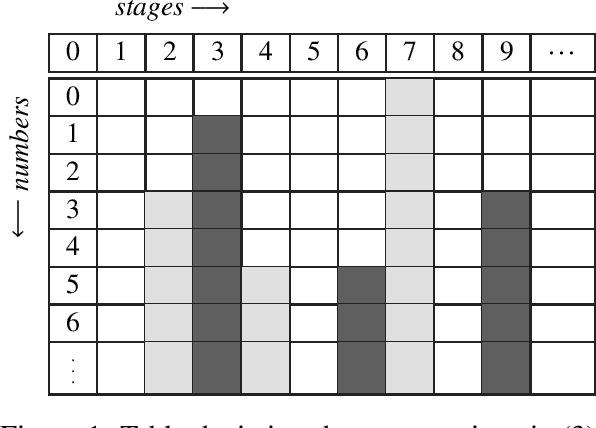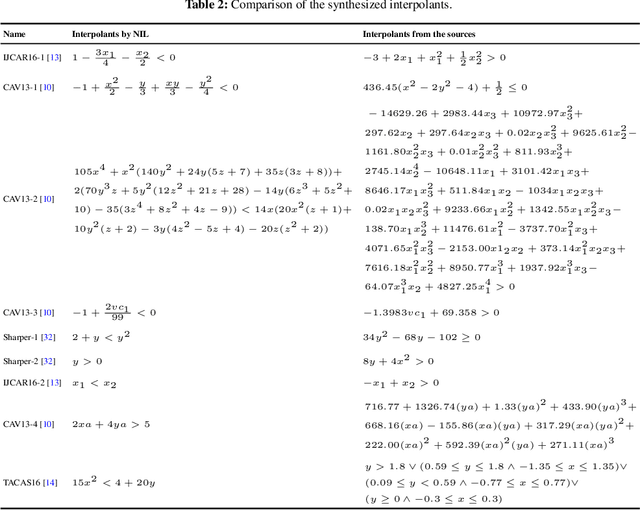Bohua Zhan
Compression of enumerations and gain
Apr 06, 2023
Abstract:We study the compressibility of enumerations, and its role in the relative Kolmogorov complexity of computably enumerable sets, with respect to density. With respect to a strong and a weak form of compression, we examine the gain: the amount of auxiliary information embedded in the compressed enumeration. Strong compression and weak gainless compression is shown for any computably enumerable set, and a positional game is studied toward understanding strong gainless compression.
NIL: Learning Nonlinear Interpolants
May 28, 2019



Abstract:Nonlinear interpolants have been shown useful for the verification of programs and hybrid systems in contexts of theorem proving, model checking, abstract interpretation, etc. The underlying synthesis problem, however, is challenging and existing methods have limitations on the form of formulae to be interpolated. We leverage classification techniques with space transformations and kernel tricks as established in the realm of machine learning, and present a counterexample-guided method named NIL for synthesizing polynomial interpolants, thereby yielding a unified framework tackling the interpolation problem for the general quantifier-free theory of nonlinear arithmetic, possibly involving transcendental functions. We prove the soundness of NIL and propose sufficient conditions under which NIL is guaranteed to converge, i.e., the derived sequence of candidate interpolants converges to an actual interpolant, and is complete, namely the algorithm terminates by producing an interpolant if there exists one. The applicability and effectiveness of our technique are demonstrated experimentally on a collection of representative benchmarks from the literature, where in particular, our method suffices to address more interpolation tasks, including those with perturbations in parameters, and in many cases synthesizes simpler interpolants compared with existing approaches.
 Add to Chrome
Add to Chrome Add to Firefox
Add to Firefox Add to Edge
Add to Edge